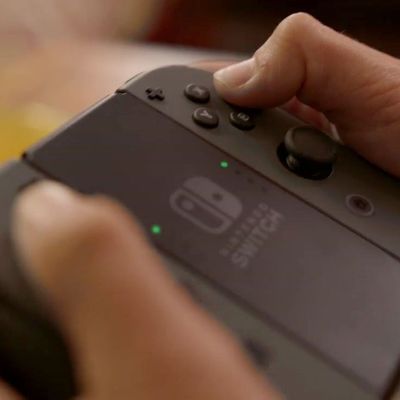
This morning, Nintendo finally revealed its next console, the Switch. The big feature of the new hardware is its modular setup — parts can be rearranged depending on the situation. The control modules can be used while attached to or detached from the central unit, which means games can be played on a TV or on the go. You can combine two modules into something comparable to an Xbox or PS4 setup, or you can split them up for multiplayer purposes.
It’s all very … neat, for lack of a better word. Whether it will be a success is an entirely separate question. For the past decade, Nintendo has relied on the novelty of motion-sensing control schemes on the Wii and Wii U. Both of the consoles never really lived up to their potential, though the Wii was an initial smash hit. Part of the problem was that both consoles lagged behind their Microsoft and Sony counterparts in terms of horsepower, and that made third-party support for the systems more difficult, resulting in a slow trickle of worthwhile games. For the past decade, Nintendo has been an also-ran in the home-console market.
Portable is an entirely different story for Nintendo. Its DS and 3DS systems have been reliably successful for the company. But the portable-gaming market that Nintendo once monopolized, starting with the Game Boy, has been completely overturned by smartphones and app stores selling games for a buck or two. The company’s ambition for the Switch is most understandable when you view it not as an underpowered box connected to your TV, but as a premium mobile experience. (Though, oddly, Nintendo is claiming it’s a home console “first and foremost.”)
That brings us back to the controller, which solves a problem that fans of mobile gaming have had for a long time: Touch screens suck. Sure, they’re fine for poking and prodding menus, but they’re terrible for games that require precision, and they require the user to literally cover parts of the screen in order to play the game. Have you ever played a good first-person shooter on a phone or tablet?
There is an entire cottage industry of third-party smartphone controllers, none of which have been standardized. For years, mobile game developers have been chattering about a first-party controller from Apple, which would codify gaming control schemes for iPads and iPhones.
What the Switch is proposing is something that there has seemed to be a market for forever, but that neither Android nor iOS has catered to on a hardware level — not just graphical power, but tactile feel as well. Portable gaming that mimics the home-console experience, right down to the controller.
And, well, the Switch will probably be a neat party trick, too.





























